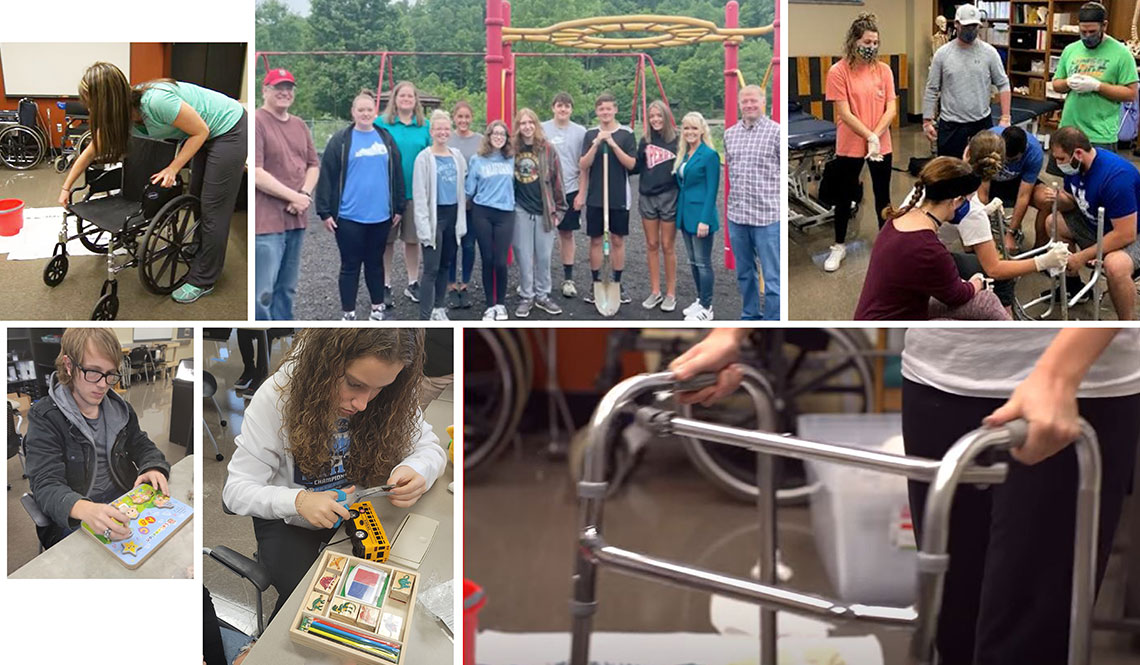
A community is enabled through the restoration and reuse of walkers, wheelchairs and more
- Select a language for the TTS:
- UK English Female
- UK English Male
- US English Female
- US English Male
- Australian Female
- Australian Male
- Language selected: (auto detect) - EN
Play all audios:

Wheelchairs, which typically cost from $500 to $2,000, get beat up with use. Most insurance companies will only pay for a replacement once every five years. But they’re not the most
requested item by CARAT’s clients. That honor goes to bath benches (also known as a shower seat or bath-and-shower transfer bench), which Medicare and most insurance companies won’t cover
since the seating is not considered to be medically necessary. “The bathroom is the most dangerous room in your house because it gets wet," says Kitzman. "Getting in and out of
your tub is dangerous, especially if someone doesn’t have good balance or movement. A bath bench is _not _a luxury.” Children with a range of disabilities and differences are often in need
of customized toys. “A standard off-the-shelf toy might not be usable by children who have motor, visual or sensory issues,” says Kitzman, who explains that adding weighted bags to some
toys, such as a stuffed animal, can be helpful to a child who has sensory challenges. “It's the same as when we put weights on a cane or a walker for older clients who don't have
good sensation in their extremities," Kitzman notes. Students from several of the university’s departments, including engineering, assist with the toy revamps. “Toys we’re working on
have lots of components, like multiple switches,” explains Kitzman. “The students figure out how to turn the sound down for individuals who don’t like loud sounds, or how to make lights
brighter for kids with low vision. Students are even creating handsfree connections to toys.” SEE THE SUPPLIES Anyone can use Kentucky’s Assistive Technology Locator to see the inventory of
assistive and durable medical equipment that's available for clients to borrow and try or receive at no- or low-cost. The toy work, says Kitzman, “let's us make the world a little
bit easier for kids." RESULTS LEAD TO FUNDING CARAT has eight sites across Kentucky. The organization has refurbished and distributed some $3.5 million in equipment since its founding.
Kitzman reports that CARAT’s 2022 AARP Community Challenge grant led to the organization receiving additional public and private grant funding ($156,000 and $125,000, respectively). The
latter came in March 2023 from Toyota Motor Manufacturing Kentucky to support the new Appalachian Center for Assistive Technology, or ACAT, located in Hazard at the Center of Excellence in
Rural Health. The center will serve the disability population in eastern Kentucky through education, demonstrations and loans of assistive technology. The makerspace allows for the rapid
adapting of equipment to meet individuals’ needs. The ACAT will also serve as a training site for aspiring disability and accessibility aides and professionals, such as speech-language
pathologists, physical therapists and occupational therapists. _Reporting by Amy Lennard Goehner | Page published May 2023_ WATCH A VIDEO ABOUT PROJECT CARAT _YOUTUBE UNIVERSITY OF
KENTUCKY_ [embedded content] LEARN MORE
